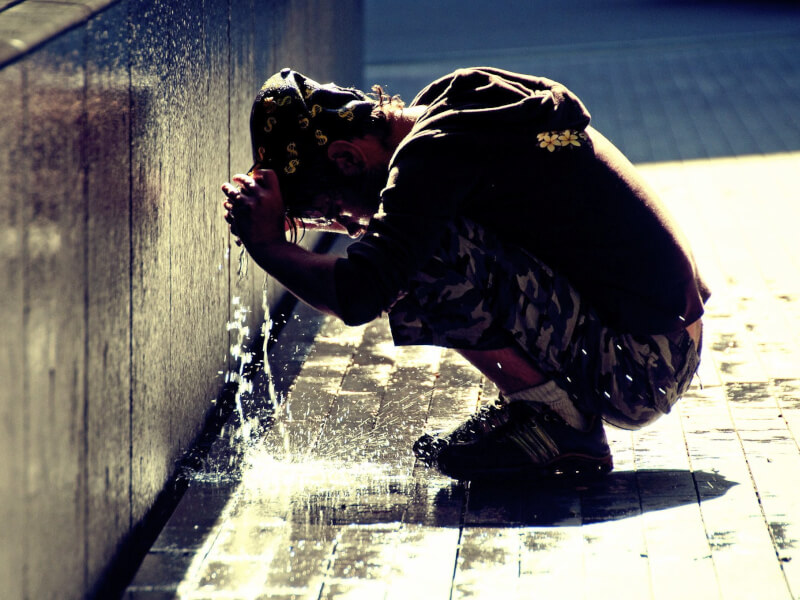31 July 2023 – On July 16th, the heat index in Iran surpassed 66°C: 10°C higher than the tolerable limit for human
life. The waters off the coast of Florida in the United States exceeded 36°C: 2°C above normal, and
enough to completely wipe out the life of corals that host 25% of marine life. The ongoing fires in
Canada have already incinerated an area equivalent to the entire territory of Portugal, shattering
all known records.
The last 8 years have been the hottest ever recorded, and 2023 will break previous records. The
global climate has entered a completely unfamiliar terrain. What science feared would happen in
20 or 30 years is happening today. Or rather, it began happening yesterday.
The UN warns about the critical situation, issuing a code red for all of humanity, which no longer
generates changes or surprises. And it’s understandable. Warnings don’t always have the
necessary strength to achieve precautionary goals. They don’t always alert us to the unexpected.
On the contrary, over time, their repeated alarms become invisible in their obviousness.
When the chorus of voices multiplies, persistently pointing out what is already known, the warning
weakens and becomes a mechanism of psychological defense rather than a call for urgent
correction or modification of the events that provoke it. A mechanism that fulfills its therapeutic
function when the warned event finally occurs, and the one who issued the warning can vent with
the identity-defining phrase of every good Argentine: “I told you so!”
But both the sender and receiver of the message – the latter often making excuses to justify their
misguided actions or indifference – know from the beginning what the outcome will be. So the “I
told you so!” also serves as an exculpatory function. By shrugging and accepting the reproach, the
responsible party for the frequently vague victims of these events absolves themselves of guilt.
And we are all ready to turn the page so that everything remains the same.
The sender and receiver are necessary participants in the disaster: one through passive action,
the other through active omission.
In 1955, Tom Dale and Vernon Carter published an indispensable yet forgotten text in current
times: “Topsoil and Civilization.” Briefly and clearly, they demonstrate how the rise and fall of
major Western civilizations could be attributed to multiple factors, but only one was decisive and
absolute: the erosion of fertile soil essential for producing the food that sustains the flourishing of
human culture. When societies forgot or disregarded this natural law, civilizations collapsed. The
authors then point out that our current civilization only differs from the past in its overwhelming
capacity to accelerate this definitive process of destroying the land. And it can do so, as never
before in history, on a planetary scale.
Since then, the desperate warnings from the scientific world, environmental organizations, the
United Nations itself, and anyone willing to see the current state of planet Earth, have been
pointing out the overly obvious: there is no sustenance for human life without a living Nature.
Without functioning ecosystems. However, for 70 years, we have systematically and blindly
evaded the primary and unavoidable responsibility of individual and community action, using
economic jargon and technological illusions.
It doesn’t matter how many theorems and financial tools we invent. It doesn’t matter how
vehemently sophistical their benefits are proclaimed in the name of freedom. It doesn’t matter
how enamored we are with those speeches. It doesn’t matter how many promises of technology
procrastinate the moment of facing reality and acting accordingly. Without biogeochemical cycles
that regulate the climate and provide water and fertility to the soil, there will be no possibility of
sowing wheat. And without wheat, there will be no bread. And without bread, there will be no
circus to continue lulling our already sleepy society.
Generally, those who warn of misfortune unconsciously harbor a faint desire for what they warned
to happen so they can close the cycle of vindicatory “I told you so!” But this is not the case. No one
wishes to have a reason for which there will be no relief or exculpation. And I return to the
beginning: on July 16th, the heat index in Iran surpassed 66°C, 10 degrees higher than the
tolerable limit for human life.
Originally published in La Nación in Spanish.






